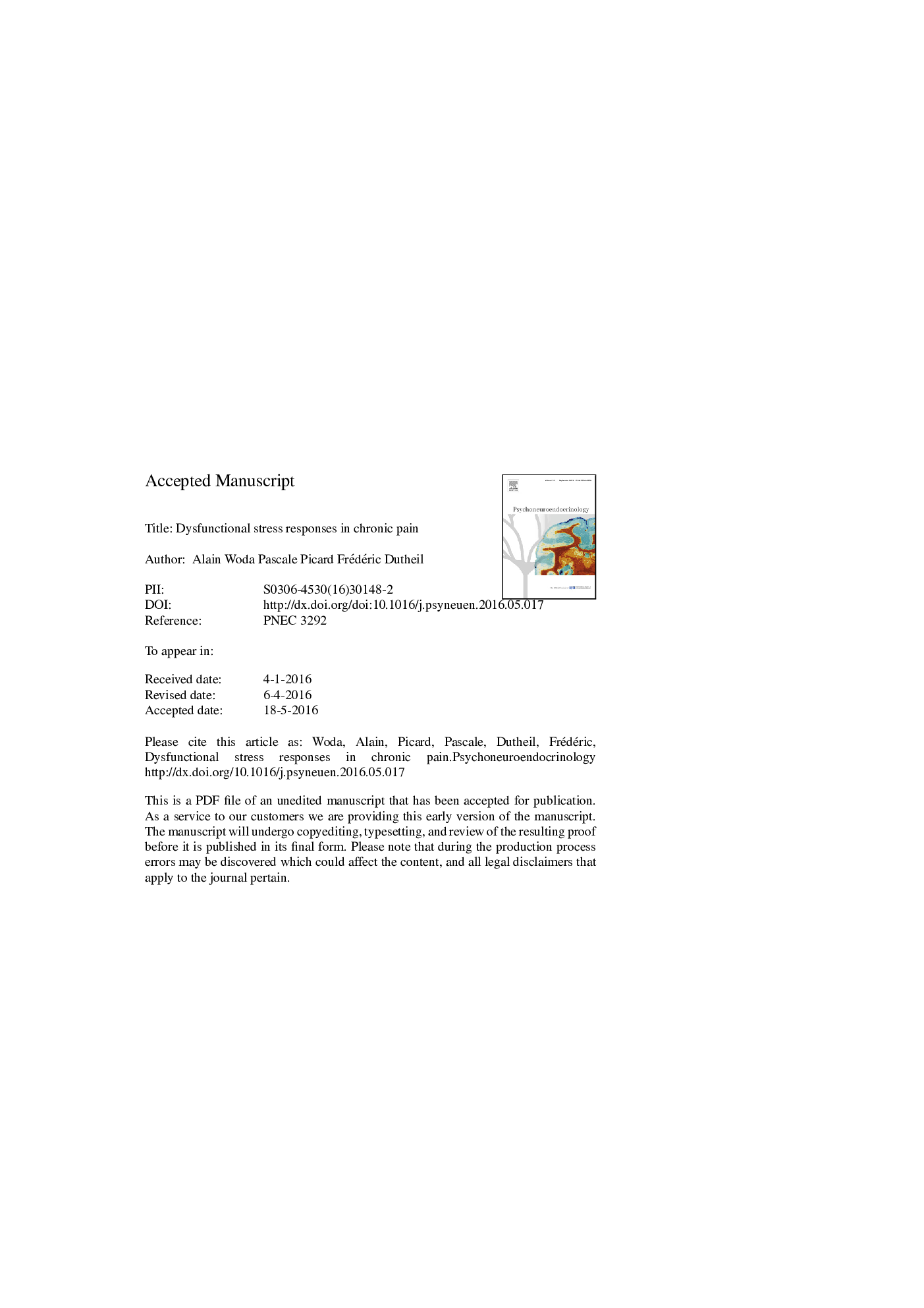| کد مقاله | کد نشریه | سال انتشار | مقاله انگلیسی | نسخه تمام متن |
|---|---|---|---|---|
| 6818017 | 546997 | 2016 | 30 صفحه PDF | دانلود رایگان |
عنوان انگلیسی مقاله ISI
Dysfunctional stress responses in chronic pain
ترجمه فارسی عنوان
پاسخهای استرس ناکارآمد در درد مزمن
دانلود مقاله + سفارش ترجمه
دانلود مقاله ISI انگلیسی
رایگان برای ایرانیان
کلمات کلیدی
حاد، مزمن، فیزیوپاتولوژی، مرض، سامانه ی عصبی خودمختار، محیط،
موضوعات مرتبط
علوم زیستی و بیوفناوری
بیوشیمی، ژنتیک و زیست شناسی مولکولی
علوم غدد
چکیده انگلیسی
Many dysfunctional and chronic pain conditions overlap. This review describes the different modes of chronic deregulation of the adaptive response to stress which may be a common factor for these conditions. Several types of dysfunction can be identified within the hypothalamo-pituitary-adrenal axis: basal hypercortisolism, hyper-reactivity, basal hypocortisolism and hypo-reactivity. Neuroactive steroid synthesis is another component of the adaptive response to stress. Dehydroepiandrosterone (DHEA) and its sulfated form DHEA-S, and progesterone and its derivatives are synthetized in cutaneous, nervous, and adipose cells. They are neuroactive factors that act locally. They may have a role in the localization of the symptoms and their levels can vary both in the central nervous system and in the periphery. Persistent changes in neuroactive steroid levels or precursors can induce localized neurodegeneration. The autonomic nervous system is another component of the stress response. Its dysfunction in chronic stress responses can be expressed by decreased basal parasympathethic activity, increased basal sympathetic activity or sympathetic hyporeactivity to a stressful stimulus. The immune and genetic systems also participate. The helper-T cells Th1 secrete pro-inflammatory cytokines such as IL-1-β, IL-2, IL-6, IL-8, IL-12, IFN-γ, and TNF-α, whereas Th2 secrete anti-inflammatory cytokines: IL-4, IL-10, IGF-10, IL-13. Chronic deregulation of the Th1/Th2 balance can occur in favor of anti- or pro-inflammatory direction, locally or systemically. Individual vulnerability to stress can be due to environmental factors but can also be genetically influenced. Genetic polymorphisms and epigenetics are the main keys to understanding the influence of genetics on the response of individuals to constraints.
ناشر
Database: Elsevier - ScienceDirect (ساینس دایرکت)
Journal: Psychoneuroendocrinology - Volume 71, September 2016, Pages 127-135
Journal: Psychoneuroendocrinology - Volume 71, September 2016, Pages 127-135
نویسندگان
Alain Woda, Pascale Picard, Frédéric Dutheil,
